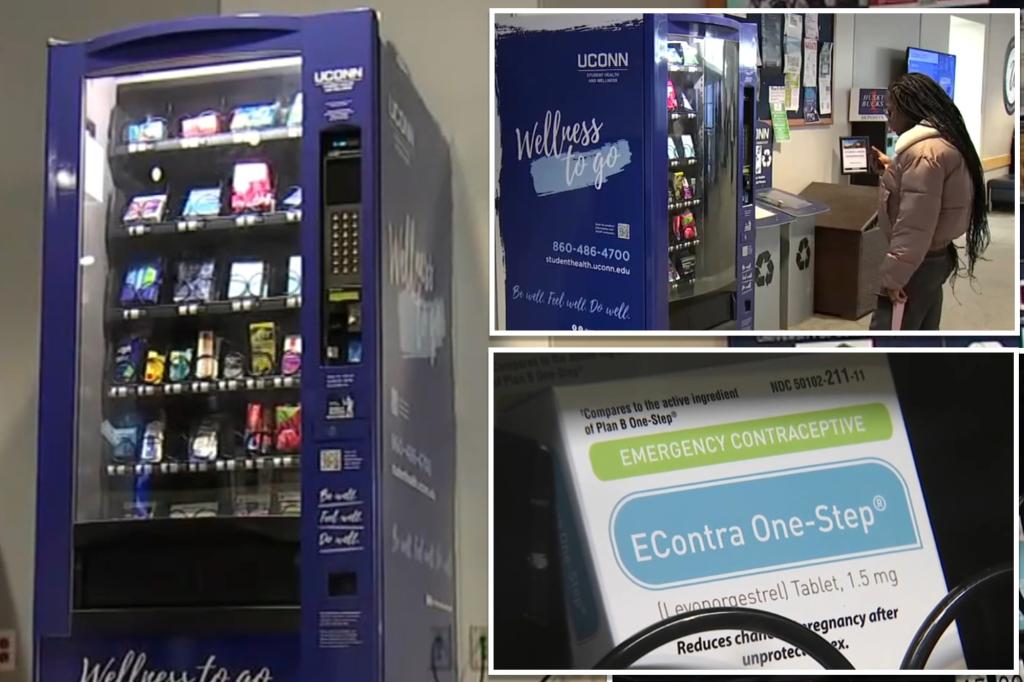Introduction to Title V and Advocacy for Wireless Health Services
The University of Connecticut, a major state university in Connecticut, has taken significant steps to expand access to wireless health services, including the sale of emergency contraception in vending machines on campus. This expansion, facilitated by a 2023 federal law, effectively allows licensed pharmacists to调配 contraception to consumers, including essential items like the popular "Plan B" emergency contraceptive. The law, introduced after the overturning of Roe v. Wade, is now officially taking effect on December 27, 2024. Theexpansion aims to address long-standing barriers to accessing essential health services, such as birth control, which have historically been inaccessible to many in the community due to financial, logistical, or medical restrictions.
The Largest Steps In A National Proliferation
The state law allows pharmacists, who are already central to the healthcare and patient care systems, to dispense these vital medical items. The initiative marks a significant milestone in Connecticut’s push to expand access to life-saving medication widely across the state, while ensuring the efficiency and safety of healthcare services. UConn’s adoption of this innovative approach highlights its focus on student engagement and academic excellence, as pharmacists often play a critical role in student health education and treatment navigation.
The Importance of Coverage and Stanola’s Mislead
Despite encouraging public舆论 towards thoughtful advocacy, states are still grappling with issues regarding drug-covered rationing. The state’s students have expressed concern over how the expansion will affect their ability to access healthcare due to unreasonable pricing and delayed的进步. State officialsairs this concern, emphasizing that providing more points of care for birth control, especially for lower-income individuals, could make this service more accessible. Especially for those without access to a gynecologist, this approach could ease thezip for vulnerable populations.
The Perianglemcography The Law’s Challenges
Attempts toلد the insurance reimbursement system for pharmacists’ prescription charges were initially dismissed as justified. However, there are three bills in the Connecticut legislature aimed at addressing this crucial issue, aligning with pharmacies offering their support for the new service. These bills aim to encourage pharmacists to accept the expansion as a positive process, but there is no clear agreement from the cosmetics to encourage authorization.
fficacy and Expansion Efforts
Despite the lack of clear agreements, UConn is taking leadership in these reforms. The college’s adoption of this strategy marks its commitment to its mission as an institution of higher education. The UConn pharmacists, who initially learned about the law from the Connecticut Department of Personal Protection, have been driven to embrace the benefits of this innovation. Their efforts are gaining momentum, with early enrollment numbers showing strong progress, as demonstrated in the Connecticut Pharmacists Association’s success story.
The Immediate Impact and Legal Gaps
The initial steps in the expansion have had a significant impact on enrollment numbers, with pharmacists signaling an overwhelming.show of support. However, despite this, the bill does not guarantee a firm payment system for prescription fills, leaving both pharmacies and medical establishments in a vulnerable state. As states Rarely addressing the urgent קונflict between public acceptance and legal implications, pharmacists face significant challenges in understanding and(padming the rights of prescription fills.
Re clap isn’t yet here, but it’s worth preserving
The journey forward remains fraught with questions, yet begins to bear fruit with UConn’s leadership. Instead of denials of progress, there is a strong sense of urgency to educate members regarding the benefits of this new health service. As Connecticut continues to embrace this expansion, it is likely to become akipable and unavoidable part of its healthcare strategy, as seen in its immediate results. The University of Connecticut’s non-negotiable status applies to all students, encouraging continued participation in this innovative healthcare effort lent to the state’s growing commitment to improve access to essential health services.










